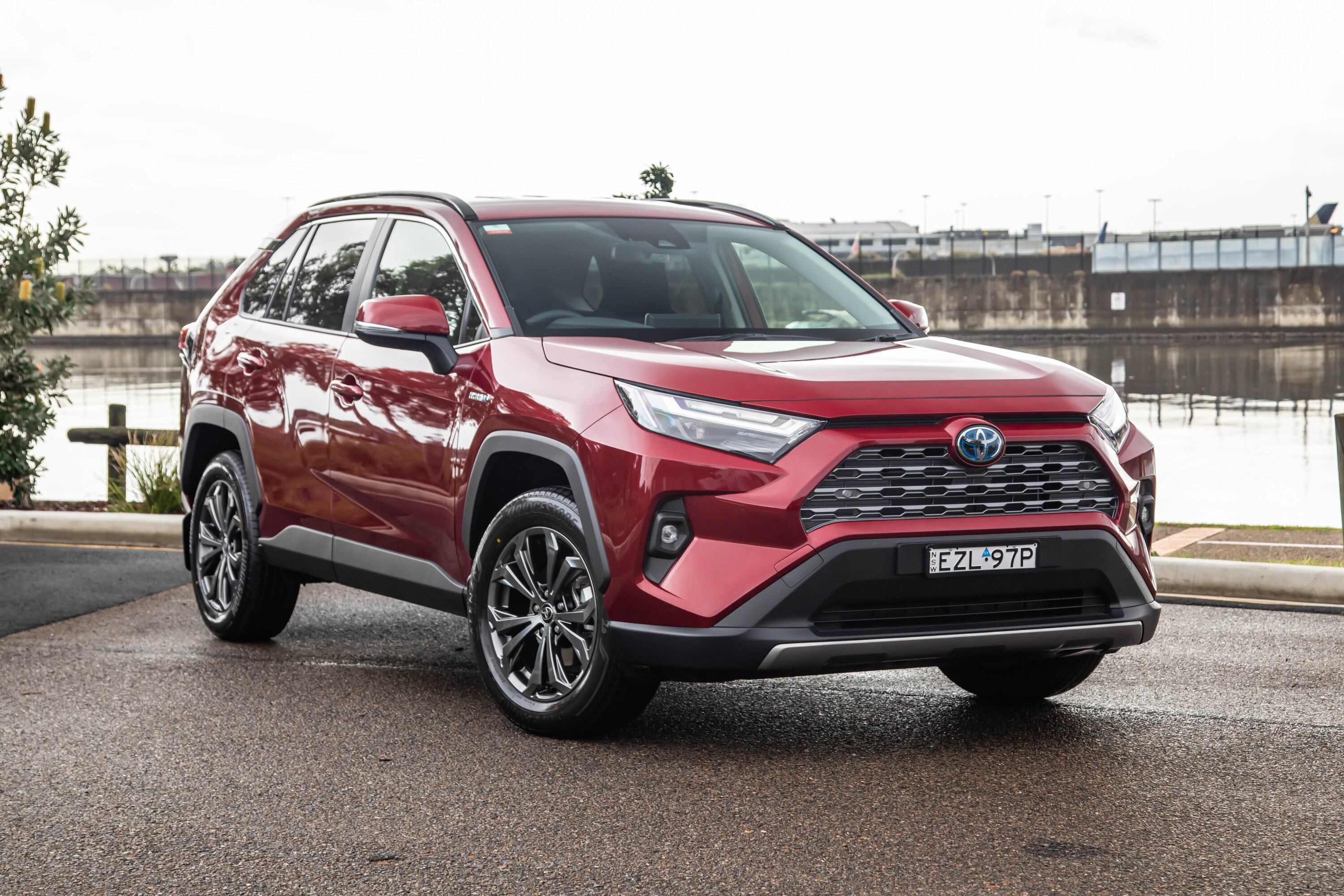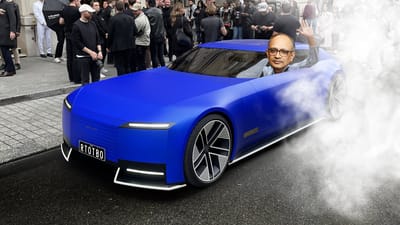"How do they charge so much for these cars?!" Because, uh, your brain

But, if you find yourself regularly smashing keyboards in the comments section as you sit flabbergastin' at the price of new cars, this might be just the "mate, come on" guide for you.
It's a familiar scene for any motoring journalist.
Another new SUV is released, and its price tag pushes right up to or over six figures for the trim and features you'd actually want in a car.
The comments section on the pricing story lights up with a familiar chorus of disbelief and outrage. "Nobody has that kind of money!" the pragmatic, never fooled reader exclaims.
And yet, within months, we start seeing that very same SUV on our commute, in the school drop-off line, and parked at the local shops.
Even though your heated comments on 2026 Toyaudi GL6 Series Pricing Revealed would never hint at it, you know as well as I do why these cars are so bloody expensive.
Part of it is simple economics: Every year, shit costs more – especially when they keep adding more to the cars. (Many enthusiasts insist cars don't need all the new toys, but people keep buying the ones with all the toys.)
And when you think of how many parts and people it takes to design and develop and build and market a new car, nobody anywhere in that line is going to just swallow their own increasing costs.
The rest of it, the profit? Well that's just because they bloody well can. You wanted capitalism, champ. Yer grandpa fought for it. Here it is!
Now, you might actually be the sensible and pragmatic guy you play in the comments, never buying anything you shouldn't, never falling for the tactics that power the whole damn economy and probably even the stuff your own business or employer sells – but as sales results show, most buyers... are merely human.
It's a mental game, and car companies play it to perfection.

Don't let dealers charge you more, we've already made sure you'll pay what we want!
Our minds are really damn easy to mess with, especially when it comes to money. I fall into this trap every time a cool new camera is announced, ffs.
(The ideal number of cameras is all the cameras you have, plus one.)
Cars, though? A $90,000 price tag feels intimidating, a financial mountain to climb. But $300 a week? That feels like a manageable hike. This is a classic psychological trick, breaking down a large, scary number into small, digestible chunks.
It’s the same logic that sells us gym memberships we rarely use or streaming subscriptions we forget we have. The small, regular payments fly under our financial radar, effectively disguising the true long-term cost. Death by a thousand card taps.
The trickery starts before you even leave the house. You’ll see a new model advertised with an enticingly low price. Generally, that'll get you the base model with the the least powerful and least efficient engine, the shittiest transmission, cloth seats, and a plastic steering wheel.
It’s a vehicle that technically exists but is rarely the one people actually want, and often the one the dealer "just sold the last of. Bugger".
Nevermind that, though. He's got the mid- and high-spec models ready to go with the panoramic sunroof, the premium sound system, and the advanced safety features. Now, the extra ten or twenty grand doesn't feel like a new price, but an investment in getting the car you really want, the one you deserve.
Car brands are masters of this mental game. They don’t just sell metal, rubber, and glass; they sell status, safety, their in-house finance offers, and the idea that you’ve earned the whole damn deal.
The advertising constantly reinforces the narrative that life is tough, but it can be joyous! You work hard, and you deserve a reward! Look at those kids in the 30-second ad spot, running out to see dad's shiny new SUV! Don't you want your kids to love you?
A new car becomes the ultimate pat on the back, a tangible symbol of your success and a sanctuary from the stresses of the world. Hell, if you're consistently unable to vote in a government that might actually do something about all that traffic (psst, it's public transport and cycling infrastructure and more business centres and more flexible work hours), you might as well be comfortable and look great while sitting in it.
It feels good, and in the moment, that feeling often outweighs any rational financial calculation.

Then, they give it financial superpowers
This "treat yourself" mentality is made all the more tempting by financial products that make the irrational feel perfectly rational. The classic car loan used to be three or maybe five years. Now, terms of seven years are a standard offering. This significantly lowers the regular payment and makes a higher purchase price feel much more manageable.
It's an option many are taking: According to July 2024 numbers from Finder, around 2.5 million Australians currently have a car loan.
That goes neatly with the 304,000 sales the market has seen to private buyers so far in 2025, and in 2023 – according to sums run by veteran journo Paul Gover for CarExpert – the average price of a new car sold in 2023 was just under $62,000.
"Nobody can afford these prices!" the commenters cry, year after year. Apparently quite a few can, or are at least prepared to pretend.
Even at the 'cheap and cheerful' end, the average price of a light car rose from $15,480 in 2019 to $25,375 in 2024, according to this strong piece for GoAuto by Matt Brogan.
Of course, this is partly because most brands have dropped the actual cheap and spartanly equipped models in favour of the ones with more gear – and profit margins that very comfortably cover the cost of including those niceties.
More of those numbers
- Small Cars: A more modest increase of 18.7%, with average prices rising from $21,662 in 2019 to $26,635 in 2024.
- Medium Cars: Rose by 12.7%, with averages climbing from $31,140 to $35,670.
- Large SUVs: Increased by 13.2%, with the average price going from $47,170 to $54,330.
- 4x4 Utes: A relatively modest rise of 9.7%, from an average of $40,177 to $44,472.
Then there is the salary packaging powerhouse: the novated lease. This is essentially a three-way deal between you, your employer, and a finance company that allows you to pay for your car and all its running costs from your pre-tax salary.
To be fair, the potential tax savings can be substantial and it's far from the dopiest way to buy a new car. Or a newly used car, in many cases. It's a popular way to get into a new vehicle, with the ATO's data-matching program expecting to track around 240,000 individuals on novated leases each financial year.
These financial tools fundamentally change the purchasing equation. They shift the focus away from the total cost—which is often much higher over a long loan term—and onto a predictable, manageable weekly expense that fits perfectly into the brain's reward-seeking logic.
The 2020s: A perfect storm
On top of all this, the past few years handed the car industry an unprecedented amount of power.
The pandemic created a perfect storm of supply chain chaos, microchip shortages, and logistical nightmares. Suddenly, there weren't enough new cars to meet demand. And even if there were, why would any smart brand tell the market?
For the first time in decades, the buyer lost almost all their bargaining power. Discounts disappeared, and dealers started adding "market adjustments" on top of the sticker price. We all got used to the idea of long waiting lists, so we either buy the high-spec car they have in stock or a three-year-old entry-level model for a little more than it cost brand-new.
(At least, these days, it'll still have some warranty on it and probably not stink of ciggies. But the last bloke's farts will always be there...)
For most people, this scarcity completely reset expectations of what a car should cost, and the industry learned that they could sustain much higher prices even after supply started to return to normal. They got a taste of selling fewer cars for more money, and they’re not in a hurry to go back.
That's really just how it is, and it is absolutely not just cars. If you run your own business, or you're tuned into what your employer has to charge for the products you help it make and sell, you know you're doing the same thing. If you could make a lot instead of a little, wouldn't you be a little bit of an idiot to not?
Aight, good chat. xoxo.
No spam, no sharing to third party. Only you and me.





Member discussion